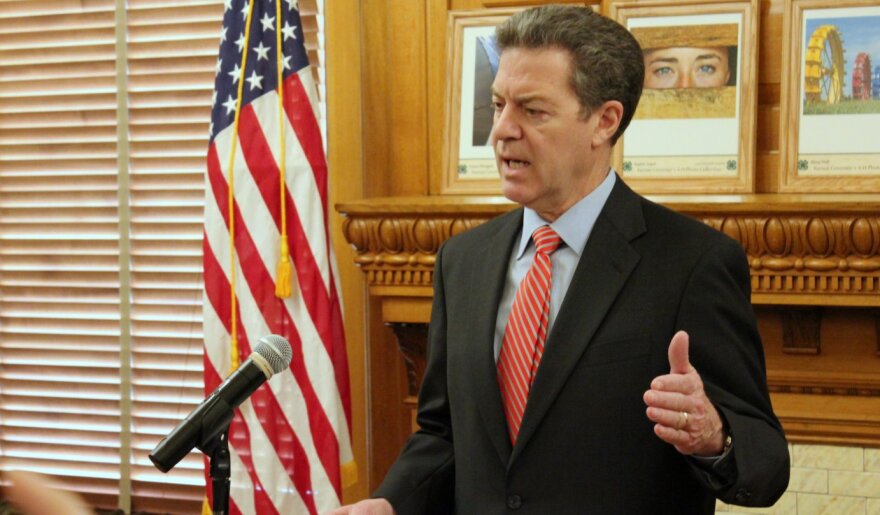Gov. Sam Brownback denounced the level of spending in the Kansas budget, but he still chose to sign the bill into law over the weekend.
“I am signing the budget, despite my concerns about excessive spending, to avoid a break in core functions of government and to provide state workers with well-deserved pay increases,” said Brownback in a statement Sunday afternoon.
Brownback did choose to use his line-item veto power to strike down two parts of the bill. His vetoes do not reduce overall spending in the two-year budget.
The timing of his vetoes gave lawmakers interested in an override little time to organize before the ceremonial end of the session Monday.
Brownback nixed part of the budget aimed at blocking his administration from consolidating or modifying Medicaid services for Kansans with disabilities. Brownback called that provision overly broad but said his administration wouldn’t attempt changes “without meaningful engagement with stakeholders and approval from the Legislature.”
Sean Gatewood, with the KanCare Advocates Network, said it makes sense for lawmakers to have oversight because of the large amount of money spent on Medicaid. He’s pushing for an override of that veto.
“It’s important for the Legislature to have some say on what exactly the program looks like, and that’s why that proviso was included,” Gatewood said.
Brownback also vetoed provisions of the budget related to the money that would have been generated from the sale of lottery tickets in vending machines. That’s because he vetoed the bill creating lottery ticket vending machines earlier this month.
The spending plan includes pay increases ranging from 2.5 to 5 percent for many state employees, plus raises targeting workers in the judicial branch. Some state workers haven’t had a pay increase for nearly a decade.
Brownback and lawmakers struggled to balance the budget this year in the face of a deficit and a court ruling that said the state wasn’t adequately funding schools. Lawmakers eventually decided to increase taxes by rolling back many of the 2012 tax cuts. To do that, they overrode a veto from Brownback earlier this month.
After Monday’s ceremonial last day, known as sine die, the 2017 legislative session will clock in at 114 days. That will tie the 2015 session for the longest in state history.
Stephen Koranda is Statehouse reporter for Kansas Public Radio, a partner in the Kansas News Service.








